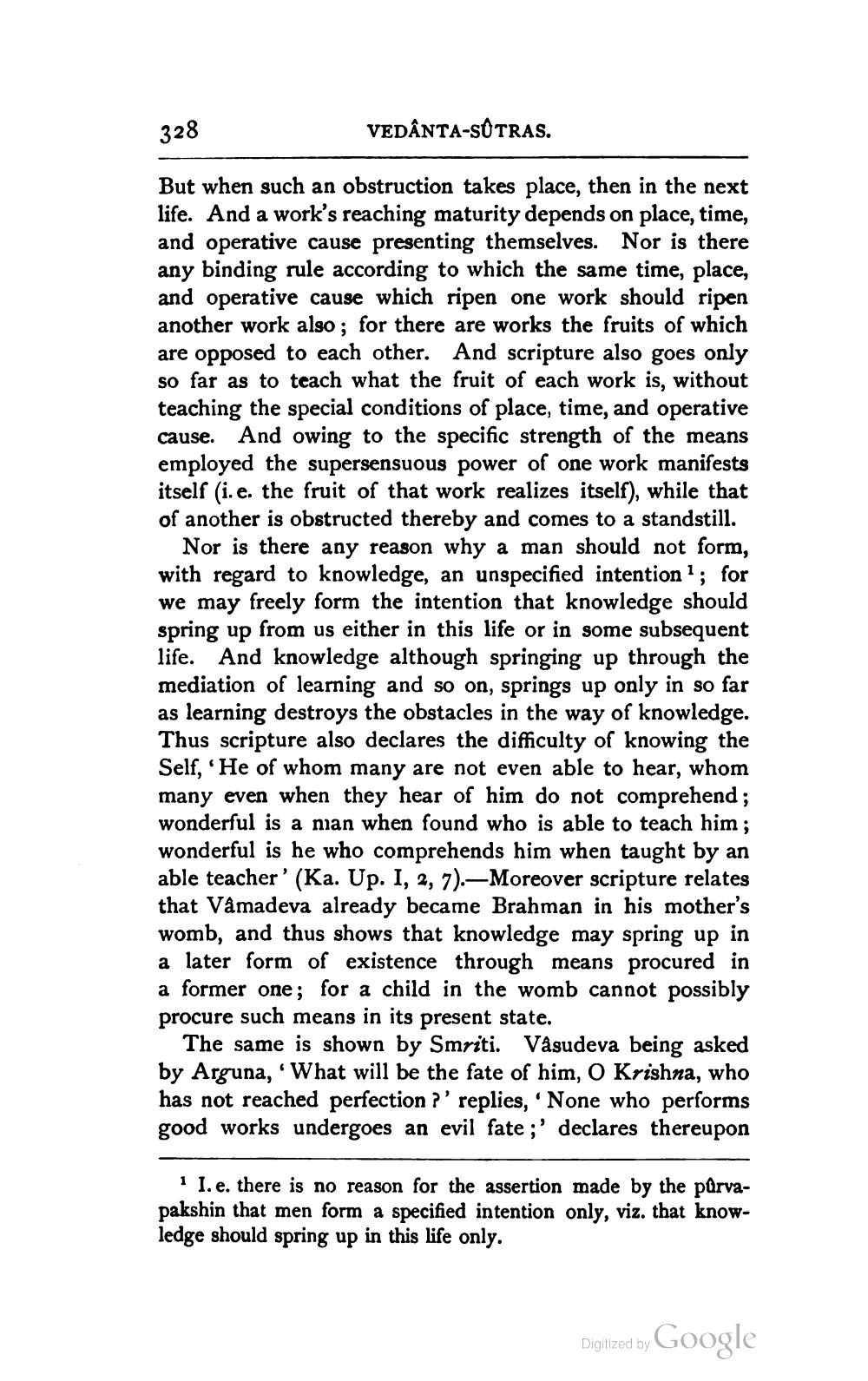________________
VEDANTA-SUTRAS.
328
But when such an obstruction takes place, then in the next life. And a work's reaching maturity depends on place, time, and operative cause presenting themselves. Nor is there any binding rule according to which the same time, place, and operative cause which ripen one work should ripen another work also; for there are works the fruits of which are opposed to each other. And scripture also goes only so far as to teach what the fruit of each work is, without teaching the special conditions of place, time, and operative cause. And owing to the specific strength of the means employed the supersensuous power of one work manifests itself (i.e. the fruit of that work realizes itself), while that of another is obstructed thereby and comes to a standstill.
Nor is there any reason why a man should not form, with regard to knowledge, an unspecified intention1; for we may freely form the intention that knowledge should spring up from us either in this life or in some subsequent life. And knowledge although springing up through the mediation of learning and so on, springs up only in so far as learning destroys the obstacles in the way of knowledge. Thus scripture also declares the difficulty of knowing the Self, 'He of whom many are not even able to hear, whom many even when they hear of him do not comprehend; wonderful is a man when found who is able to teach him; wonderful is he who comprehends him when taught by an able teacher' (Ka. Up. I, 2, 7).—Moreover scripture relates that Vâmadeva already became Brahman in his mother's womb, and thus shows that knowledge may spring up in a later form of existence through means procured in a former one; for a child in the womb cannot possibly procure such means in its present state.
The same is shown by Smriti. Vâsudeva being asked by Arguna, 'What will be the fate of him, O Krishna, who has not reached perfection?' replies, 'None who performs good works undergoes an evil fate;' declares thereupon
1 I. e. there is no reason for the assertion made by the pûrvapakshin that men form a specified intention only, viz. that knowledge should spring up in this life only.
Digitized by Google




